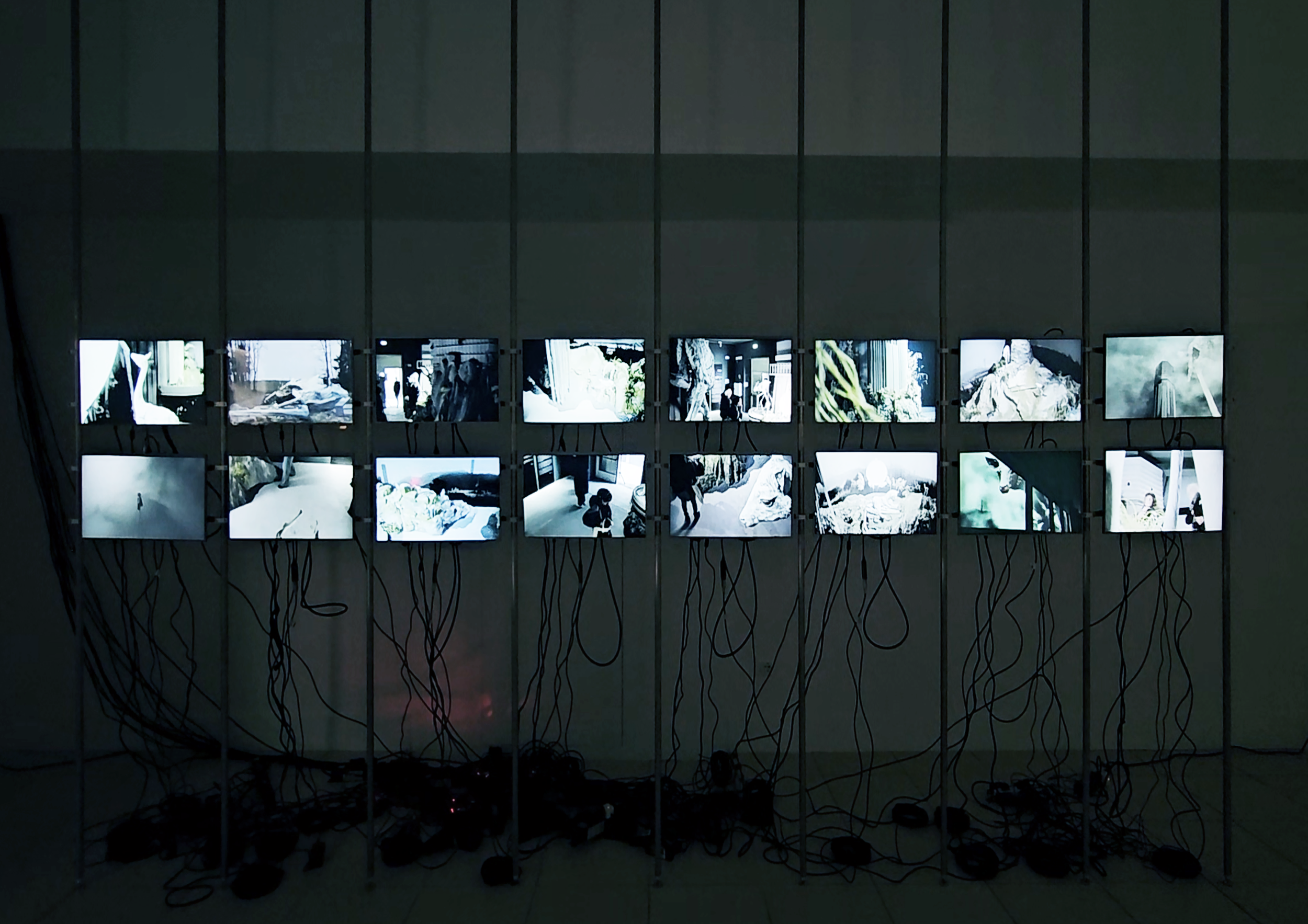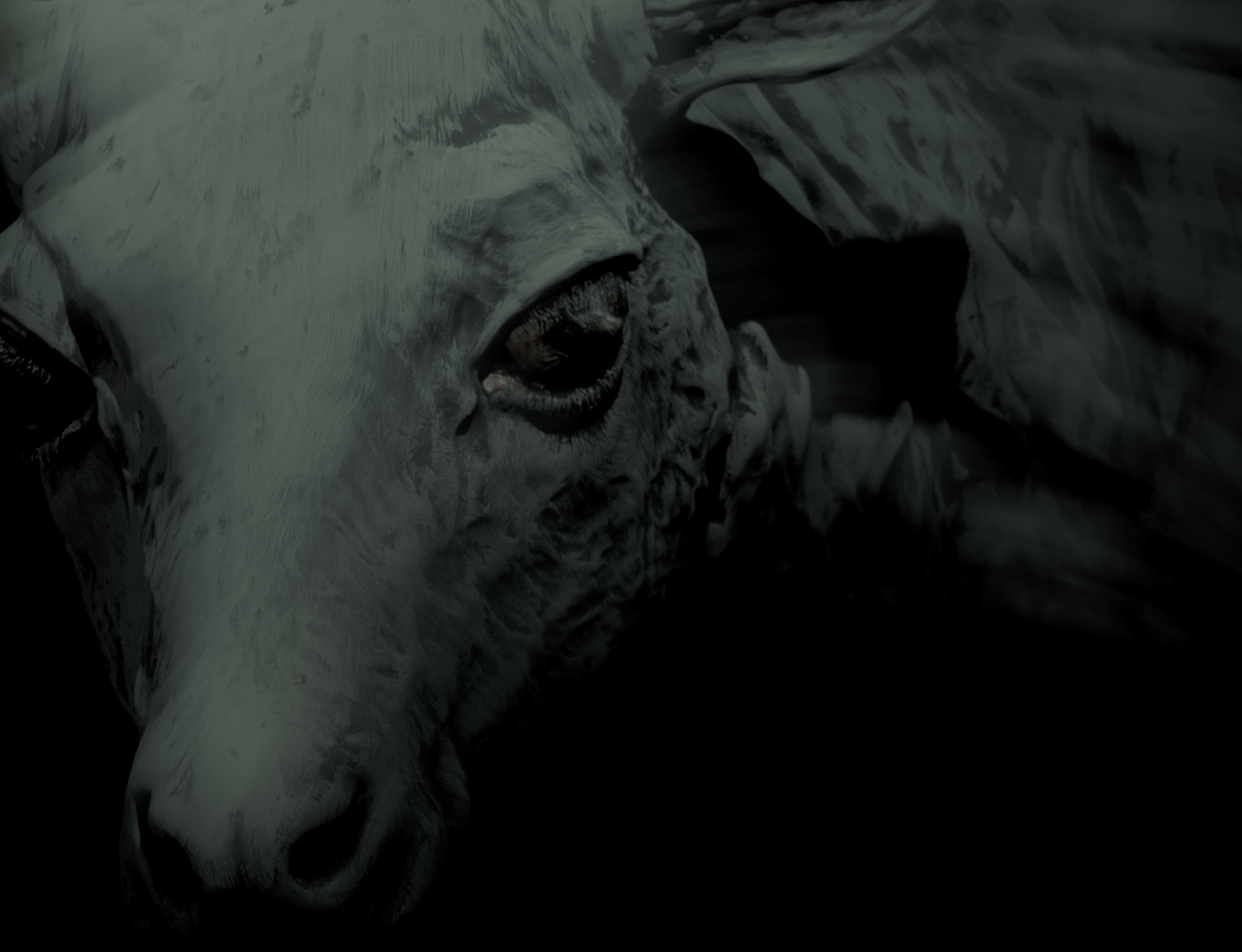
Italo Calvino’s Invisible Cities
relates the story of Zobeide and its founding.
Italo Calvino’s Invisible Cities relates the story of Zobeide and its founding. Men of various nations each dream an identical dream of a naked woman running through an unknown city. Pursuing but losing the woman, when they wake up they search for the city but cannot find it again. Together they resolve to re-build the city, altering their respective pursuits of the woman so that next time she will not elude them. Zobeide, like so many places established through processes of colonisation and globalisation, is a city of desire.


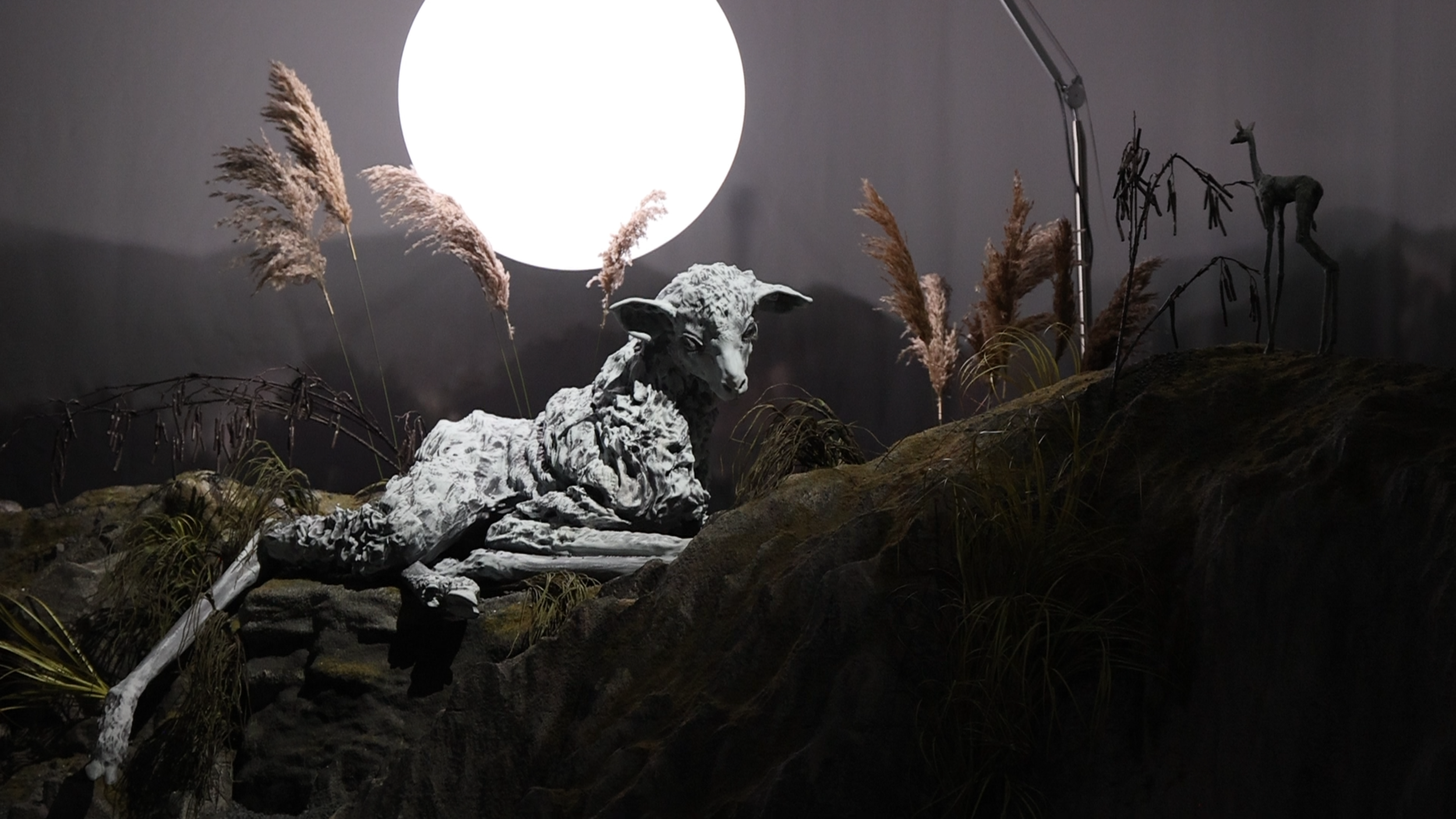



Growing up in Macao, a city developed by waves of ‘foreigners’ from various nations, Wong Weng Cheong constructs a kind of weird pastoral analogue to Calvino’s dream urbanism in his art. Wild and domesticated at once, the sole inhabitants of his landscapes are mutant herbivores with freakishly elongated legs that keep their bodies away from the grassland, their sole food source. Their dysfunctional bodies strive skyward like a living contradiction. Traces of human activity can be seen everywhere in the landscape, indicating the tight bond between civilisation and mutation. Cameras are placed in the scene, as if to monitor, record and study every detail. The visitor becomes a part of the scenario captured by the camera; the viewing subject becomes the object observed. The identity of the viewer as an ‘outsider’ becomes integral to the world viewed.
Wong constructs a landscape of the mind that alludes to the proliferating psychic, physical and existential displacements of our time. At the same time his work is attuned to the implications of the title of the 60th La Biennale di Venezia: ‘Foreigners Everywhere’. Above Zobeide locates itself amid the ubiquitous ‘inclusive exclusions’ (in Giorgio Agamben’s phrase) faced by the subject of mass migration both within and across borders, territories and cultures. In Above Zobeide, the virtual and the actual coexist without any clear border, the citizen and the stranger at once demarcated and indiscernible. As such, the location ‘Above Zobeide’ constitutes what Roland Barthes theorised as an atopia: a site that cannot be described, classified or compared – somewhere completely Other. It is a world above any ‘real’ city whatsoever, a place that continuously appears to be within reach yet continually withdraws from us. A place where everyone and no one really belongs.
Curator
Chang Chan
As visitors step into the exhibition space, they enter an alien world where distinctions between natives and intruders blur. Live-streaming cameras bring the viewer into the scene, blurring the boundaries between fiction and reality, visitors and the visited, in this strangely familiar land.
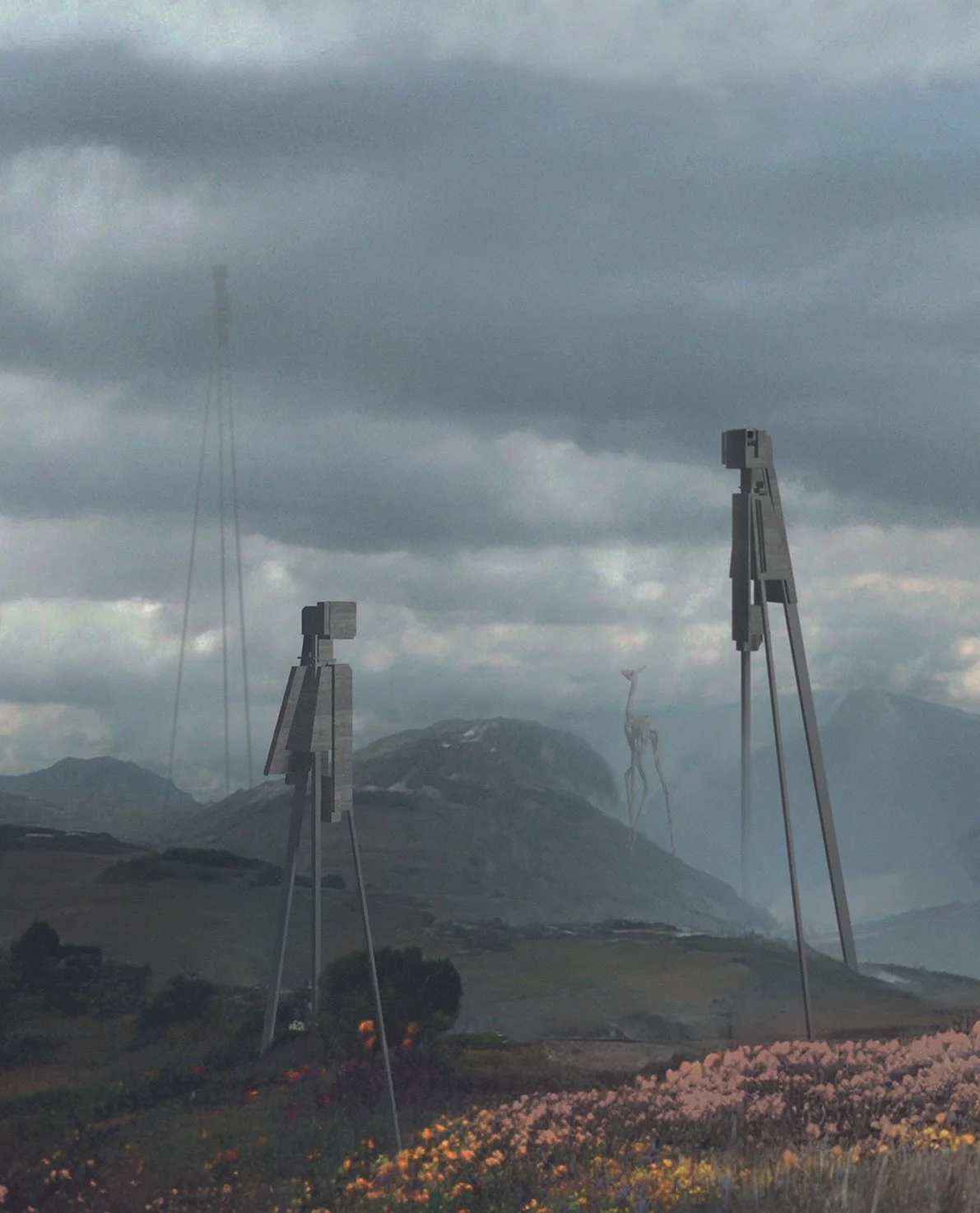
Wandering In Wilderness # 7, 42 x 52 cm, print on paper
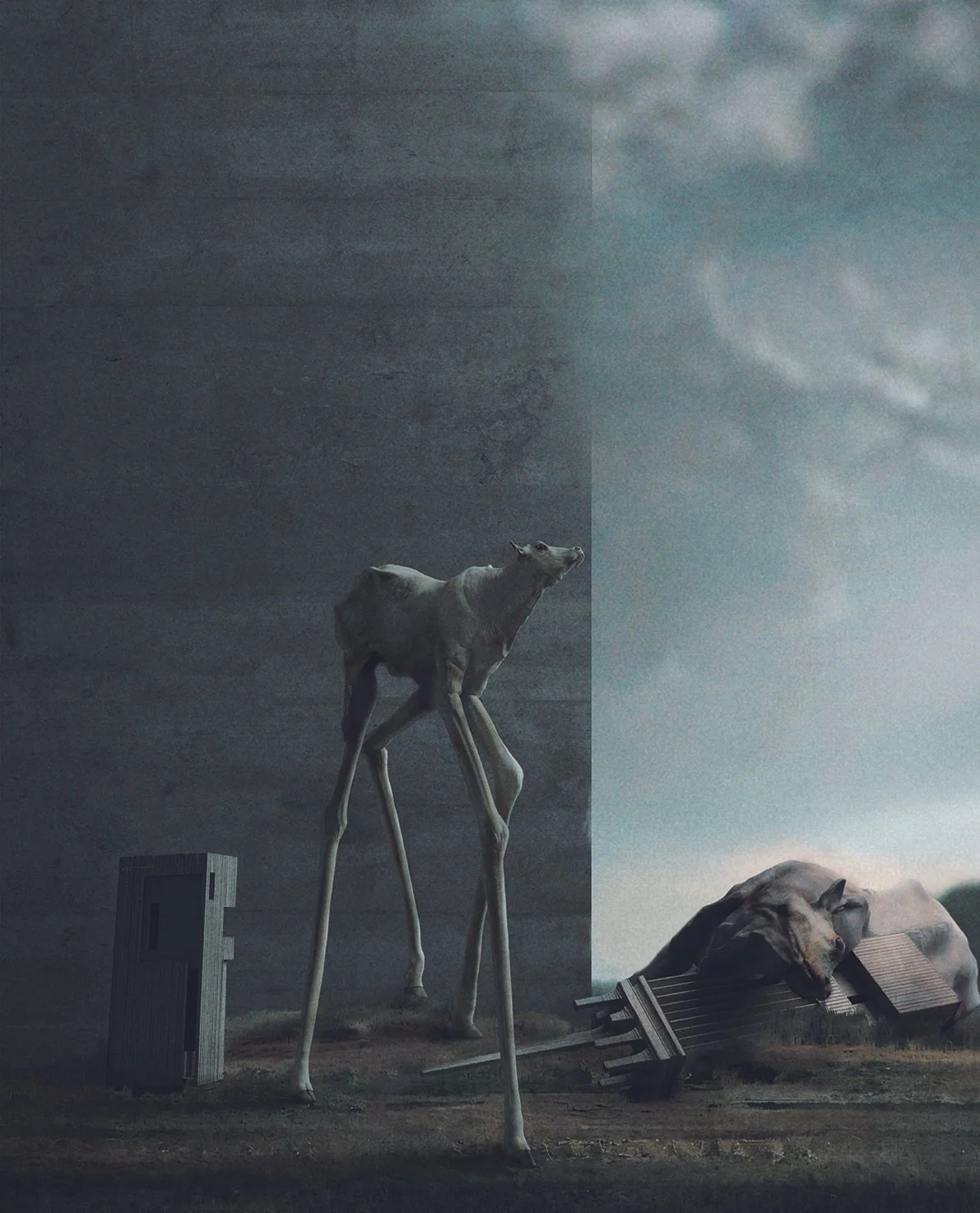
Wandering In Wilderness # 6, 42 x 52 cm, print on paper
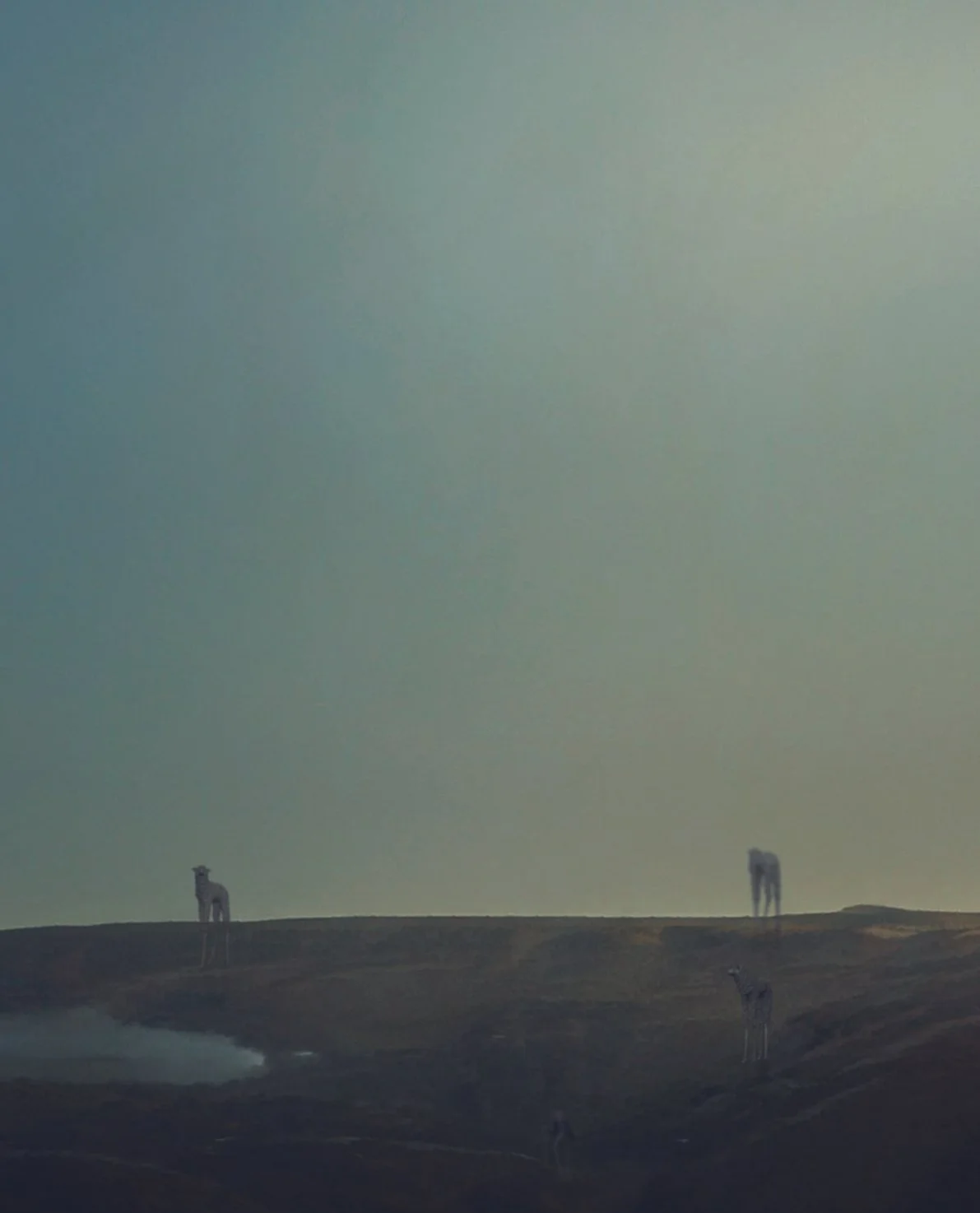
Wandering In Wilderness # 5, 42 x 52 cm, print on paper
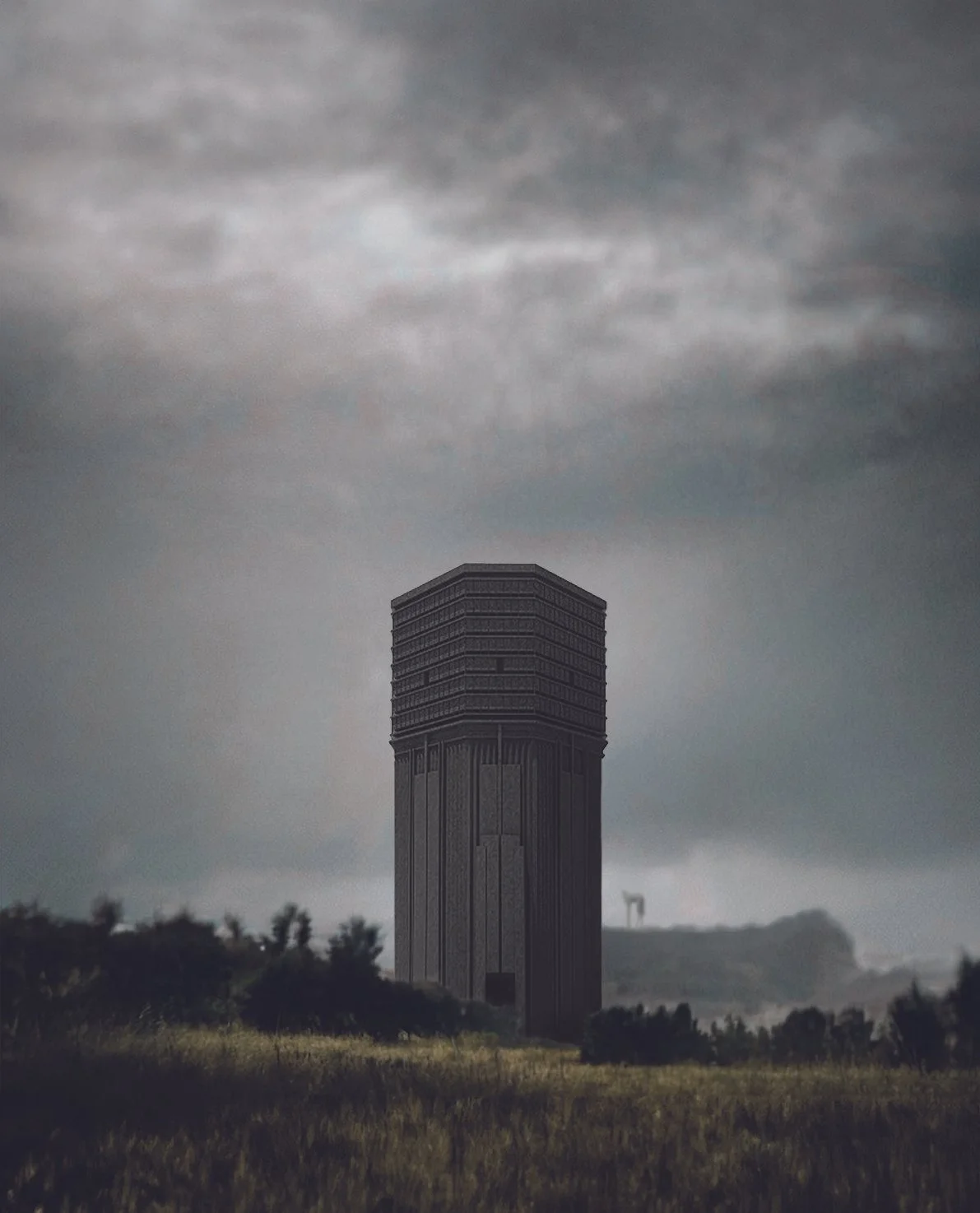
Wandering In Wilderness # 4, 42 x 52 cm, print on paper
Since 2018, Wong Weng Cheong has been creating works centred on mutated herbivores in various media, including prints, sculptures, and installations. Above Zobeide was created for the exhibition of Macao, China, a collateral event of the 60th International Art Exhibition – La Biennale di Venezia. The series, comprising three artworks – ‘Above Zobeide’, ‘Above Zobeide – Passersby’, and ‘Wondering in Wilderness’ – is a site-specific work tailor-made for this exhibition. Wong projects his observations of the contemporary lifeworld onto the virtual landscape he began to construct several years ago, metaphorically modelling the shrinking physical and spiritual habitat of our time. Wong presents a desolated urban landscape inhabited by mutant herbivores but not human beings.

